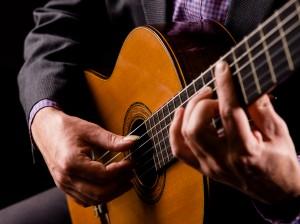Six benefits of playing a musical instrument!
Can you imagine living your life without music? While everyone enjoys listening to music, very few of us are actually musicians with the ability to play a musical instrument. There could be many reasons. Perhaps we weren’t exposed to music or given the opportunity to learn as kids. Maybe we tried to learn but had instruction that wasn’t skilled or inspiring. Some of us just don’t have the inclination towards music. But if we want to learn music it’s never too late.
Here are some important reasons why everyone should consider learning how to play a musical instrument and the benefits to your quality of life and relationships when you do so. So if you’ve ever thought of learning an instrument I’m hoping this will give you that little nudge in the direction you need to make that first step. For those considering the guitar please see my blog Why Choose The Guitar As The Right Instrument For You?
Improved Academic Skills
Music and Math are very highly related. Like math, music involves recognizing patterns, counting, division and even basic physics as we discuss the vibration and division of strings and their harmonic and sympathetic vibrations. One doesn’t have to research much to see that this concept is moving quickly from theory to fact, with countless studies being undertaken in Australia, the United States and around the world. Learning music, it’s practice and theory, benefits our capacity for both short term and long term memory positively impacting our overall academic performance.
Improved physical skills
From the first lessons, playing the guitar develops our very fine motor skills and hand-eye coordination. Our brain learns to respond with more and more accuracy to external stimulus such as translating written musical notes to the movements of our hands and fingers. This also prepares you for other rewarding activities including sports, dance, yoga and more. Learning the classical guitar (or virtually any musical instrument) also requires very different and simultaneous movements from both hands, which in turn develops an ambidextrous capacity, major advantage in all areas of the arts, sports and especially music.
Improved Social Skills
Although at Media Luna we stress the importance of one-on-one lessons, we also emphasis playing most preliminary exercises as duets with the teacher. The advantage of this is twofold: firstly students are prepared from the beginning to have the skills to play music with others, for example, going on after mistakes and really having to think on their feet; secondly it means that all preliminary studies are much more musical and engaging because there is more interaction going on with the music. As a result, students feel from the first or second lesson that they are actually making real music and not just plodding their way though dry and boring exercises.
Group music making requires interaction, collaboration and communication with your peers. Students learn quickly that they must do their part in ensemble playing and if they are going too fast, too slow or playing too loudly they will need to adjust there and then. We can’t over-emphasize the importance of being an effective part of a team, working with our fellow musicians or co-workers in harmony and being able to effectively listen and hear. This ability to listen, to harmonize to recognize dissonance translates into our work, even our intimate relationships and into most areas of life.
Teaches Discipline and Patience
In today’s society of instant gratification, learning any instrument is simply not a skill that happens overnight. Students must go through the effort and routine of practising each day in order to learn to play music with feeling and with minimal mistakes. Developing the virtue of patience is essential and students must accept the fact of putting in the hard work today to see the end results tomorrow. This requires discipline – to actually stick to the set routine and actually do the practise set out each week by the teacher. Again we find important lessons, discipline and patience, contained in the process of learning to play an instrument that are useful in all areas of life
Self Esteem and Confidence
Regardless of our level of self-confidence, learning to play a musical instrument is of great benefit. This applies to both adults and children. The very fact that you have chosen to learn an instrument, and learn it well with the aid of a qualified teacher is a great boost to one’s self esteem. Learning an instrument comes with a feeling of great achievement that will filter through to all areas of your everyday life. After developing your skills, some will enjoy playing guitar in front of others, maybe friends or family. Others may enjoy playing regularly with a group interested in the same music. A few of us also enjoy performance in a broader sense. We can prepare you for any and all of these opportunities. Learning any instrument is truly one of the most satisfying and rewarding things you can do.
Learning about other Cultures
When learning an instrument you will also learn about other cultures. This is especially true of the guitar, which is one of the oldest and most versatile instruments in the world. In the world of classical guitar, students could learn music written by composers from Spain to Russia to Australia and anywhere in between. When we learn music we also discuss the cultural origins of the composers and their music. This fosters an open-mindedness about other cultures and traditions far beyond what we might be exposed to in our everyday lives.
All this is only the tip of the iceberg. Just as we must look after our bodies by eating well and exercising, we can think of music as also doing the very same for our minds and our spirits.
“Musical training seems to have a beneficial impact at whatever age you start. It contains all the components of a cognitive training program that sometimes are overlooked, and just as we work out our bodies, we should work out our minds.”
Jennifer Bugos, Assistant Professor of Music Education. University of South Florida, Tampa.


